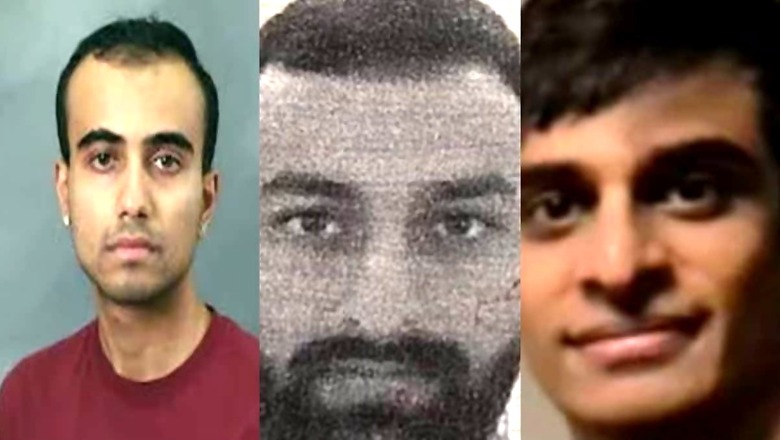
views
An Indian diaspora body in the US has asked both government and private entities to work towards addressing the alarming rise in the deaths of Indian-origin students in the country. This request comes in the wake of a series of unfortunate incidents involving Indian students in the country that have garnered attention lately.
One of the latest cases involves 25-year-old Mohammed Abdul Arfath, an Indian student who had gone missing last month. Hailing from Hyderabad, Arfath was pursuing a Masters in IT from Cleveland University. Tragically, he was found dead in Cleveland, Ohio on Tuesday.
The causes of increasing incidents involving Indian students range from suspicious shootings/kidnapping, environmental deaths due to lack of safety knowledge (monoxide poisoning, hypothermia), mental issues suicides, and violent crimes, according to an analysis done by the Foundation for India and Indian Diaspora Studies (FIIDS).
‘Spike in tragic deaths’
The FIIDS said authorities should enhance safety education, improve search and rescue procedures, implement stricter rules against fraternity ragging; increase awareness of risks and safety, and provide mental health support. Since the beginning of 2024, there have been at least half a dozen deaths of Indian and Indian-origin students in the US. A spike in tragic deaths of Indian students in the United States has raised significant concerns among the Indo-American community as well as the Indian population.
Dr Lakshmi Thalanki from Boston, who collected data on the deaths of more than 10 students, noted, “The sudden surge of deaths among Indian students is alarming and suspicious”. On Tuesday, FIIDS submitted various recommendations to the Department of State, Department of Justice, Education Department, universities, student organisations as well as the Indo-American community.
‘Fear Of Hate Crimes’
Since the sudden rise in suspicious deaths, rumours have been circulating around the Indian American community about potential hate crimes especially as many deaths are clustered around East and Midwest universities, especially in Cleveland Ohio, Illinois and Indiana. Some of them fear that the hate crimes are fuelled by negative propaganda against the community, FIIDS said.
“Even though FIIDS did not find any conclusive facts to support the rumours, they may need to be investigated to timely address their concern, a media release said. “Indian origin students, according to Open Doors Report (ODR) are 275k, making 25 percent of total foreign students and bringing in USD 9 billion per year in terms of fees and expenses,” it said.
“However, the recent increase in their deaths is concerning and, if not addressed, would impact their confidence in the safety of US universities, potentially impacting the inflow of students further,” said Khanderao Kand, chief of Policies and Strategy at FIIDS. Here are the following recommendations by FIIDS to ensure the safety and well-being of Indian-origin students:
- US Department of State: Collaborate with relevant agencies and foreign embassies to establish reporting mechanisms for hate crimes targeting Indian students. Provide guidance and support to consulates and diplomatic missions to assist victims of hate crimes and ensure their rights are protected.
- US Department of Justice and FBI: Form a dedicated task force to investigate hate crimes against Indian-origin students and communities. Enhance coordination with local law enforcement agencies to address hate crimes effectively. Investigate any connections or similarities in the incidents leading to any possible campaign of hate crimes or conspiracy.
- Universities: Introduce orientation programs and resources on safety for international students newly admitted to their universities. Develop and implement comprehensive diversity and inclusion programs to promote tolerance and understanding among students from diverse backgrounds.Establish support networks and resources for victims of hate crimes.
- Foreign/Indian Students Organizations: Collaborate with local advocacy groups and civil rights organizations to raise awareness about hate crimes and provide support to affected students. Advocate for the introduction of cultural sensitivity training for campus security personnel and law enforcement officers.
- Community Engagement: Foster dialogue and collaboration between Indian-origin students, local communities, and law enforcement agencies to address concerns and build trust. Organize community events and forums to promote solidarity and mutual support among students and residents of Indian descent.
- Jointly all of above to Combat Misinformation: Launch educational campaigns to debunk misinformation and promote accurate understanding of Indian culture, traditions, and religions. Partner with media organizations, community leaders, and academic institutions to counter false narratives and stereotypes perpetuated against followers of Indian origin religions. Provide resources and training to empower students and community members to identify and challenge misinformation.
(With agency inputs)




















Comments
0 comment